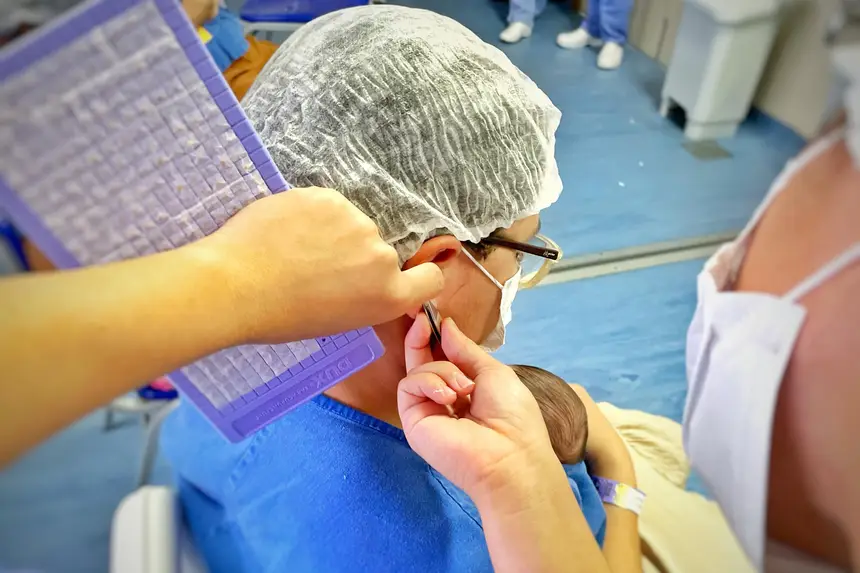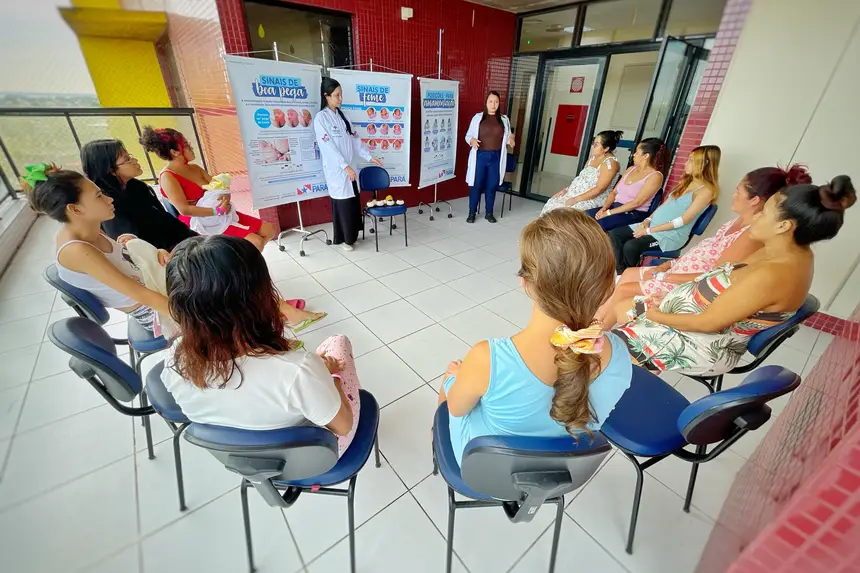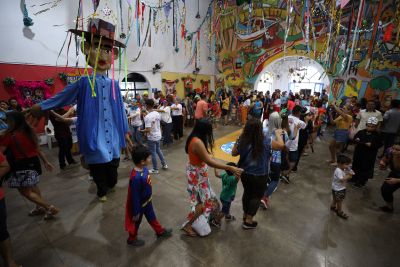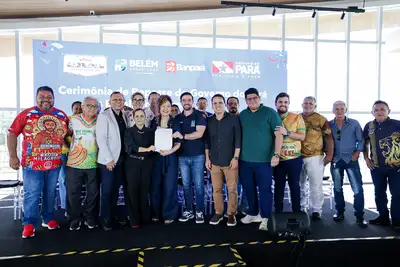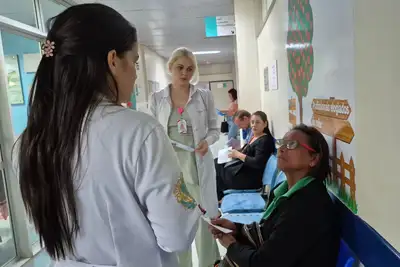Hospital Abelardo Santos intensifies support for mothers and encouragement for breastfeeding
Actions reinforce the commitment of the Government of Pará to practices that ensure comprehensive care for pregnant women
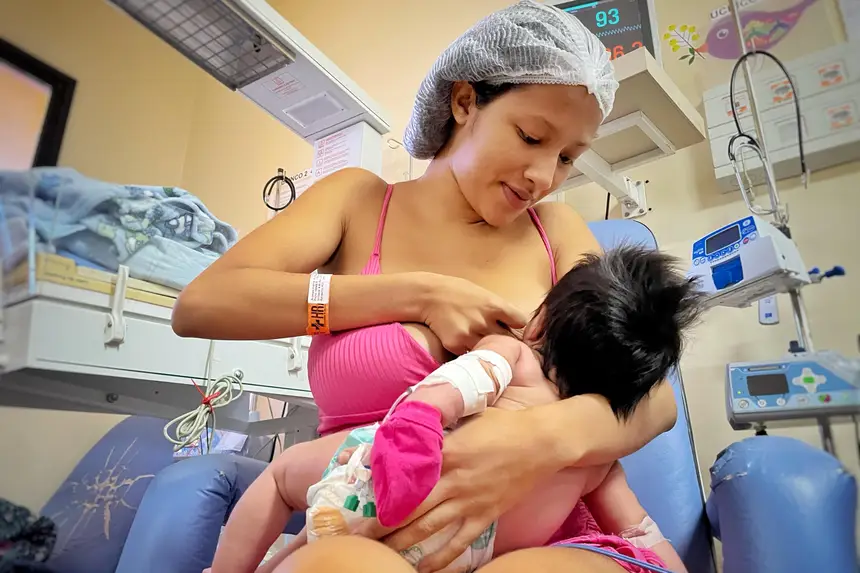
The Dr. Abelardo Santos Regional Hospital (HRAS), in Icoaraci, intensified on Friday (29) the activities of Golden August, a month dedicated to raising awareness and encouraging breastfeeding. The program included discussion circles, guidance, and relaxation moments for maternity patients, considered one of the most important in the public network of the Government of Pará.
With over 2,800 births performed in 2025 and more than 5,000 in 2024, HRAS reinforced during the campaign the work already developed throughout the year, based on the 10 steps for successful breastfeeding from the Baby-Friendly Hospital Initiative (BFHI), a certification granted by the Ministry of Health to institutions that implement good practices in maternal and child care.
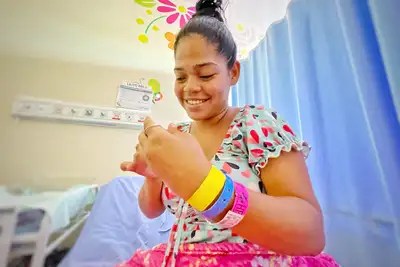
First-time mother, Adriele Rodrigues, 23 years old, learned during the HRAS program that breastfeeding is not just instinctive, but a process that requires practice. “Since the baby didn’t know and I didn’t either, the first days were tough. He latched incorrectly and my breast was sore, but I learned the correct way and made this moment wonderful for both of us,” said the freelancer.
Adriele received these and other guidelines in the discussion circles, which addressed topics such as legal rights of lactation, good practices during childbirth, evaluation of breastfeeding, and active listening of mothers. Common difficulties were also discussed, such as breast engorgement, duct obstruction, mastitis, and nipple injuries, as well as methods of prevention and treatment for these issues.
Relaxation - The activities conducted by the Humanization Committee and the multidisciplinary team took place in three other moments: relaxation and self-care practices, including foot baths, followed by auriculotherapy, a technique that uses specific points on the ear to relieve anxiety, improve sleep quality, stimulate milk production, and promote emotional balance.
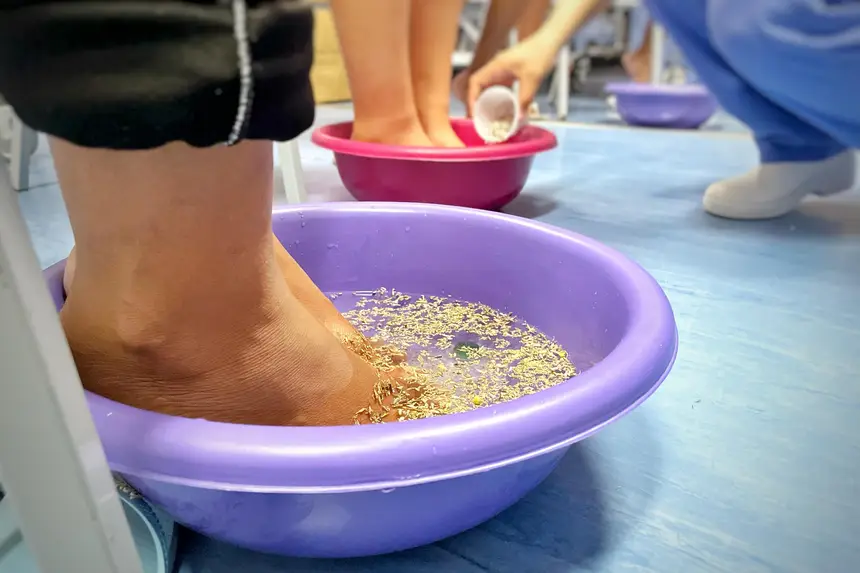
Occupational therapist Danielle Ferreira emphasizes that although the campaign focuses on August, this type of humanized care occurs throughout the year at HRAS. “Breastfeeding is not limited to a single period,” she states. According to her, breastfeeding is essential and goes beyond nutrition, involving emotional aspects between mother and child, strengthening the bond and bringing benefits to both.
“In August, we intensify these guidelines even more, with practices, so that the experience is not painful and so that they can open up, ask questions, clarify doubts, and live this very special moment. It’s not simple, but it is possible to make it enjoyable. And, in the end, we offer this relaxation space so that they feel valued and cared for,” added Danielle Ferreira.
Affection - Another moment of the program was marked by the delivery of dozens of keychains with photos of the newborns to the parents, accompanied by phrases such as: “Breastfeeding is an act of love.” This is a way for them to remember that interaction during breastfeeding strengthens the emotional bond, promoting the baby’s emotional security and contributing to the mother’s psychological well-being.
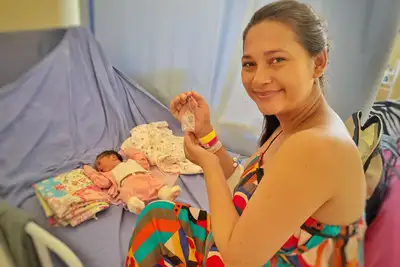
Luziane Coelho, 31 years old, received the keychain with the image of her daughter, Ana Beatriz, and was moved. “It is very gratifying to go through this challenging period, to be well cared for by the team, and in the end, to be remembered with such affection. I will carry this keychain in my bag to always remember my daughter and the experience I had here at HRAS. I am very happy for everything,” said the freelancer.
“Each mother experiences this moment uniquely, with doubts, fears, and discoveries. Our role is to be by their side, offering guidance, listening, and affection. When they realize they are not alone and can count on a support network not only from family but from the hospital, breastfeeding becomes more special,” highlighted occupational therapist Layane Sena.
BFHI - As shown on the Ministry of Health's portal, the Baby-Friendly Hospital certification was created by the United Nations Children's Fund (UNICEF) and the World Health Organization (WHO). In addition to following the 10 steps for successful breastfeeding, the unit must ensure humanized and respectful care for pregnant women during the gestational and postpartum periods.
These requirements are rigorously evaluated by representatives of the Federal Government's health agency, who also check aspects such as unrestricted access of parents to the hospitalized newborn, allowing their stay for 24 hours, as well as compliance with the Brazilian Norm for the Marketing of Foods for Infants and Young Children (NBCAL).
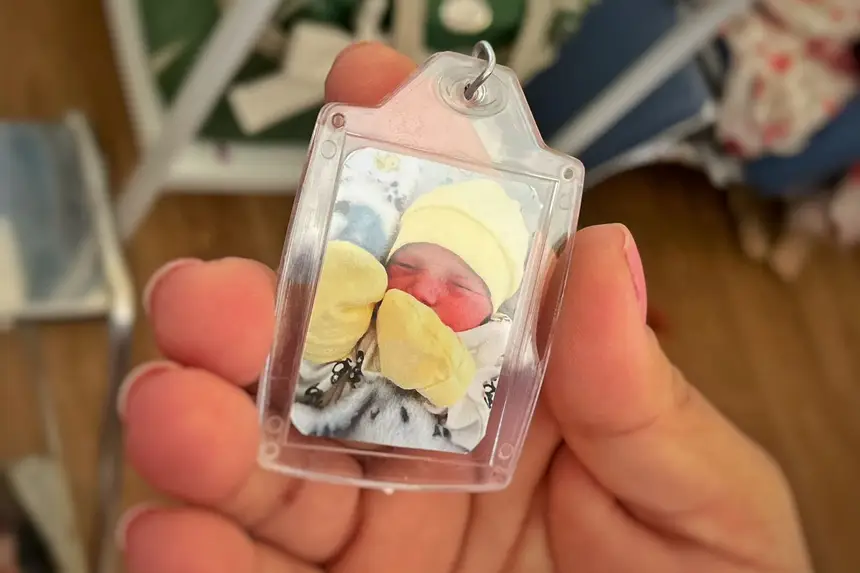
Babies born in certified hospitals are less likely to undergo unnecessary procedures, such as airway suctioning, oxygen administration, and incubator use. Additionally, the practice of skin-to-skin contact with the mother immediately after birth, the initiation of breastfeeding within the first hour of life, and rooming-in, are routines that are already part of HRAS.
Structure - The Abelardo Santos Hospital offers a modern structure that includes obstetric and gynecological emergency services 24 hours a day, with five delivery rooms and 50 obstetric inpatient beds. Furthermore, if desired by the mother, the multidisciplinary team provides relaxing massages, warm water baths, and aromatherapy, in a welcoming environment with soft lights and relaxing sounds.
For pain relief, the unit uses non-pharmacological methods, having physiotherapists in the delivery rooms full-time, relaxing massages, warm water baths, and aromatherapy, minimizing mothers' discomfort. The institution also promotes childbirth preparation courses during prenatal care, reinforcing its commitment to the health and well-being of pregnant women.
Another important tool is the use of a warm water bathtub for water births. This resource offers several benefits: it relaxes the muscles, reduces the sensation of pain during contractions, and promotes greater elasticity of the perineal tissues. On the other hand, the reduced gravity in water facilitates movement, allowing the woman to find more comfortable positions.


